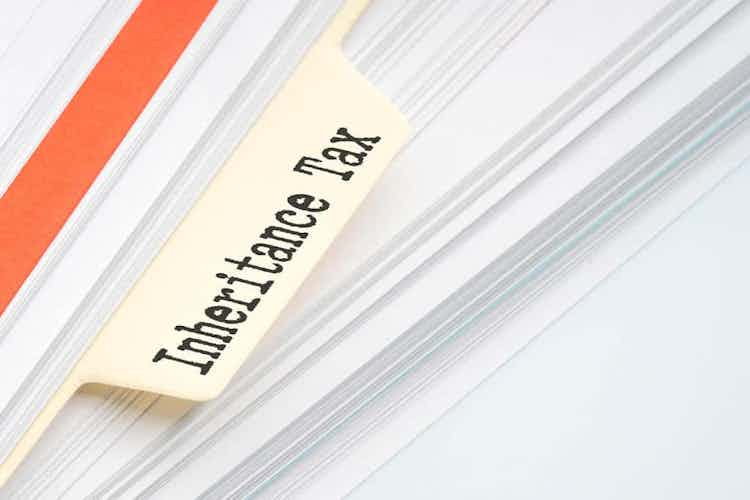In this second part of our look at inheritance tax, we’re going to look at some other ways you can reduce your inheritance tax burden. Check out the first part of our look at inheritance tax here.
Pension contributions
Rules on pension contributions have also been recently relaxed, meaning this is another potential avenue for those seeking to reduce their inheritance tax burden. In April 2015, the government altered what had been dubbed the 'death tax', whereby an invasive 55% tax was applied to pension income plans left to relatives.
However, it would be wrong to assume this decision completely abolished the tax that beneficiaries must pay on pensions. This is only true if the pension holder dies before the age of 75. However, any pension inheritance received after a person dies over the age of 75 is taxed at the standard rate of income tax – likely to be 20%.
There are other issues to consider, too. Changes to the law have not had any impact on employees whose pensions are contained within final salary schemes. This is important because these are generally considered to be the best and most generous schemes. These are pensions held by most employees who have full-time jobs, meaning that many employees approaching retirement age may benefit from considering this.
Indeed, many workers with final salary schemes have been incentivised to abandon them in favour of self-invested personal pensions or defined contribution schemes. Pensions of this nature are not as safe and secure as final salary schemes. Still, they do offer the potential of avoiding inheritance tax. Another option for those looking to minimise their inheritance tax liability is to transfer money to income drawdown schemes once they reach retirement age.
It is also important to note that anyone wishing to transfer their pension pot to a direct contribution scheme must seek financial advice if it exceeds £30,000 in total worth. Direct contribution pensions combine contributions made by employers and employees, investing them to provide income during retirement.
Again, some due diligence here can make a big difference, and it's essential to ensure that you comply with all of the legal requirements.
Kate Aitchison, private client tax director at RSM UK, told Pension Times: "Pensions have gone from being the pot you put away for retirement to one of the most tax-efficient ways to manage your estate. Investments can grow free of tax, and can be passed on to the next generation free from Inheritance Tax. Although care needs to be taken for those making contributions now to ensure that they don’t fall foul of the rules to qualify for income tax relief.
"Another planning point is that there is no minimum age for a stakeholder pension and they can also be set up for minor children to put money aside which is protected for their long-term future."
Farming land
Another way you can potentially avoid inheritance tax is by leaving some of your estate as farming or arable land. It's essential to understand this aspect of inheritance can be highly complex, particularly if you don't work in farming. However, it's still an option open to retirees, and one worth considering, particularly if you have a large sum of money, or if you own land that could reasonably meet the state's definition of farming stock.
You should seek legal advice if you're intending to claim that land forming part of your estate is used for farming. A financial advisor can assist you professionally with inheritance planning and ensure that you operate within the confines of the law. If you fail to do this, you run the risk of being charged inheritance tax on land, without any legal recourse whatsoever.
What can be said for definite is that the government allows you to pass on property completely free of inheritance tax if it qualifies for agricultural relief. Such property is defined as “land or pasture that is used to grow crops or to rear animals intensively”. That might sound simple enough in itself, but strict and complex regulations govern what is covered within this loose definition. For example, machinery, livestock, and harvested crops are exempt from this classification. The government information on this topic is located here.
Farmhouses are covered, but even here there are regulations to which you must adhere. Any property claimed as farming-related must have been held and occupied for at least two years by the owner or their spouse, or seven years by anyone else. It must also be demonstrable that the dwelling is part of a working farm in the UK or European Economic Area.
Woodland is also covered under the legislation, with those owning it able to claim full relief from inheritance tax if it is commercially managed and has been under their ownership for at least two years. Those holding woodland can also qualify for woodland relief, which potentially enables inheritance tax to be deferred indefinitely if timber is grown on the site. There are regulations which surround this, but government guidance states that tax will be deferred if the timber is “mature” and “saleable”.
This is not an aspect of inheritance tax that will impact most estates, but it is an area worth understanding. For its part, the government runs an inheritance tax and probate helpline (0300 123 1072). It encourages people to contact their experts for advice on whether an estate includes assets defined as farm or woodland.
Charities and political parties
Gifting or bequeathing money to charities and political parties doesn't allow you to keep it. It does mean you can reduce your inheritance tax burden while investing in a cause in which you believe. However, the party in question must have succeeded in gaining at least one parliamentary seat for you to qualify for this tax exemption.
It's also possible to reduce the liability rate of your heirs from 40% to 36% of your taxable estate via charitable donations. If you bequeath at least 10% of your net estate to charity in your will, then this will be achieved.
Spend it!
Your final option in avoiding inheritance tax is to enjoy your money while you're still here! No-one can stop you from spending your money, and this naturally reduces your inheritance tax calculation!
Reducing inheritance tax on your property
The rules surrounding inheritance tax can be complicated. Still, the good news is that you have a lot of options open to you if you want to reduce the burden on your estate. These are quite varied, and often require legal advice, but it is advisable to investigate at least some of them.
Here is a final summary of some of the key points included in this second part:
- Pension contributions can be exempt, but it's essential to understand the legislation.
- Farmland and woodland are often outside of the auspices of inheritance tax.
- Charitable contributions can be deducted from an estate.
- It's always advisable to seek financial and legal advice when finalising the plans for your estate.
- The government runs an inheritance tax and probate helpline that offers guidance.







